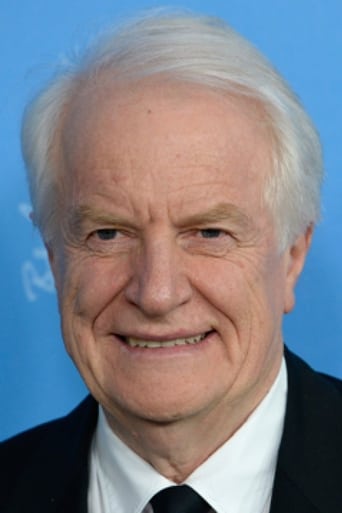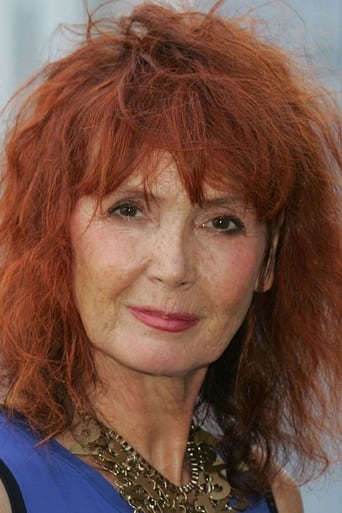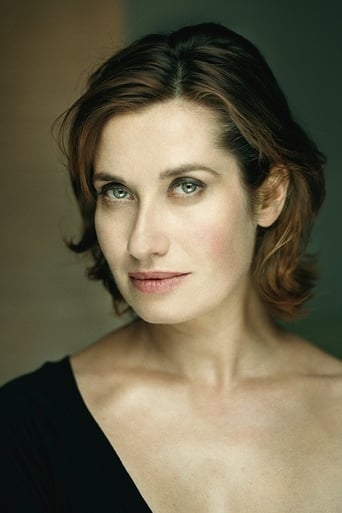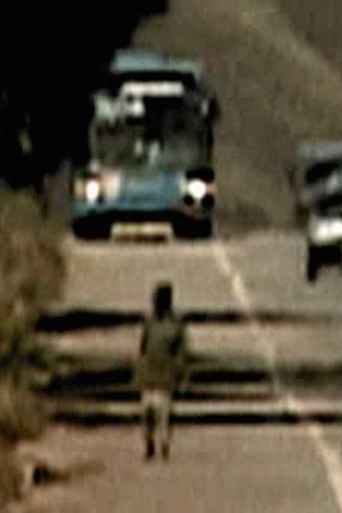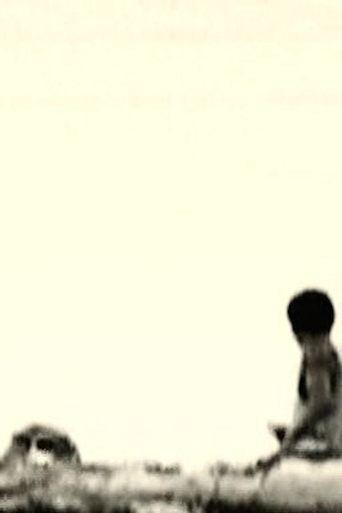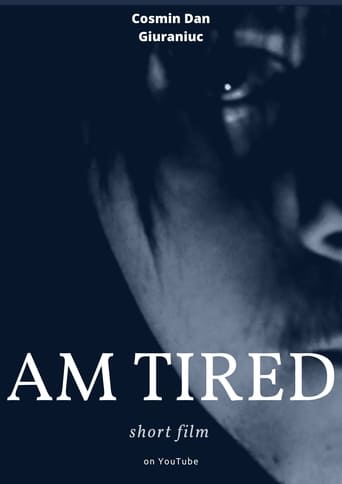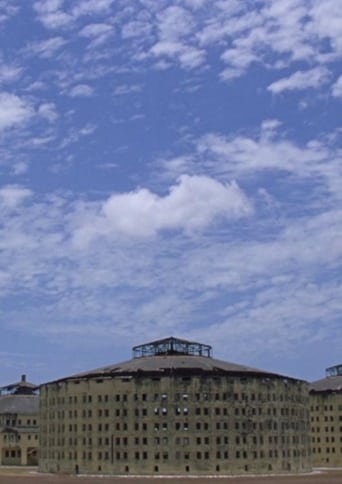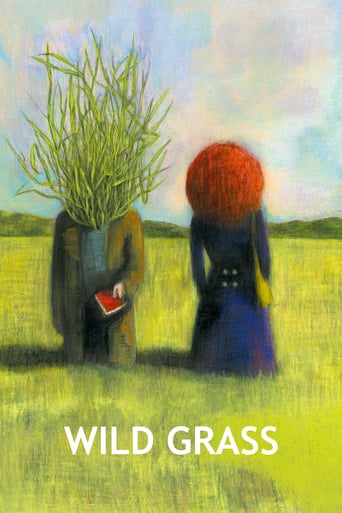
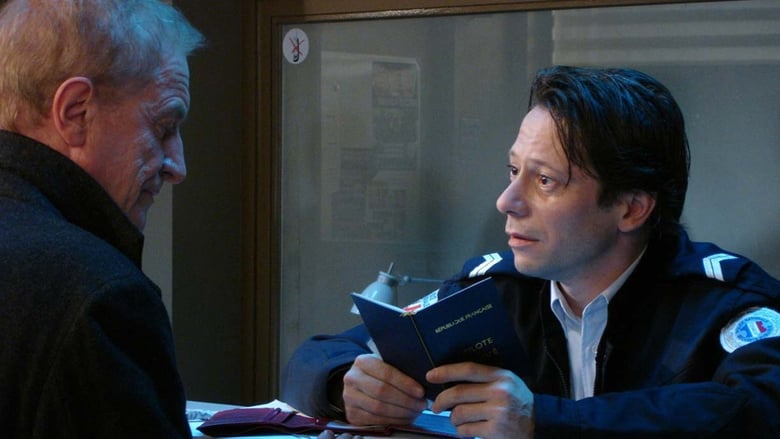
Wild Grass (2009)
Marguerite loses her wallet, and it's found by Georges, a seemingly happy head of family. As he looks through the wallet and examines the photos of Marguerite, he finds he's fascinated with her and her life, and soon his curiosity about her becomes an obsession.
Watch Trailer
Cast


Similar titles
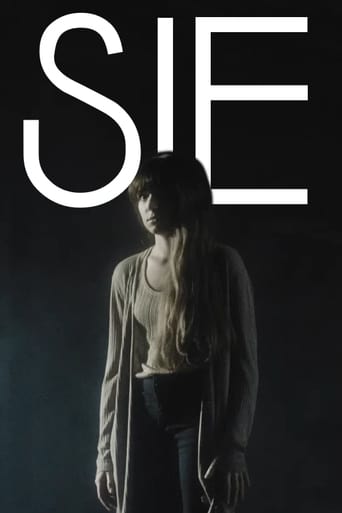
Reviews
Just as I found myself almost unbearably bored by the tedious, repetition and predictability of the movie "Ice Age 4: Continental Drift" (I had to sacrifice some time for my 10 year old son), some of the reviewers here had the same reaction to this film. There is really no point to review a film such as this one, if you are not already familiar with or have the appropriate sensibilities to appreciate this style of film-making. To approach this film with the slightest interest, you must not expect, or wish, to experience a "logical" and plot-line with understandable denouement nor should you be looking for entertainment in the "Hollywood" tradition. Steer clear. Steer VERY clear of this one if such is the case. If on the other hand, you like to be intrigued and bask in an atmosphere of uncertainty, some light-hardheartedness and absurdity... then enjoy!
The great master of the French cinema, Alain Resnais, has produced this bizarre, brilliantly made and intensely surrealist 'crazy masterpiece'. It is based upon a novel entitled 'l'Incident' ('The Incident') with which I am unfamiliar, so it is difficult to know how much of this film originated from the febrile brain of Resnais himself. The story and its treatment carry on the long-standing French traditions of two literary movements: surrealism and 'unanisme'. The surrealist input is immediately obvious, because the story itself, although realistically portrayed, is inherently entirely surrealist. It begins with an 'incident', namely the theft of a purse from a woman who has been shopping in the Palais Royale in Paris. For several minutes we do not even see her face, but only the back of her head, and her face only appears for the first time floating in a bath. It was André Breton's famous surrealist novel 'Nadja' which focused the minds of the entire French intelligentsia upon the importance of chance events which lead to chains of further complications and create a whole alternative future to that which might have been. (Kieslowski and other film directors have exploited this motif in numerous films.) This story commences in just such a way. And then further chance events ensue, such as the man finding the stolen purse and becoming obsessed with the woman who owned it, especially because she has a pilot's licence in the purse and he is obsessed by airplanes and female solo pilots. The influence of 'unanisme' on this story is shown by the intense portrayals of only tiny portions of the backgrounds, stories, and motives of the characters, with the emphasis being given to them acting as a group, and we the viewers being left to imagine the rest. In other words, exposition is below the minimum, and we never do learn what is wrong with all these crazy people, and it is their interrelations which dominate. These techniques were above all pioneered and demonstrated by the French novelist Jules Romains, who founded the literary movement known as 'unanisme'. Having read 27 novels by Romains, I have more than a passing familiarity with his work. It has been more influential than people tend to realize. It must be kept firmly in mind that this Resnais film contains a great deal of gnomic humour and sly jokes. It is not meant to be taken any more seriously than life itself. Some of the references are incomprehensible, as they are doubtless meant to be: why do we keep seeing the camera moving over swaying wild grass in a field? Why do we see so many pavement cracks with tufts of wild grass growing out of them? We shall never know. Many of the shots, editing, compositions, angles, and moods are so outstanding that we can see clearly that Resnais has lost none of his genius in his long career. As always, much in this film is never meant to be explained, but is only suggested, and we can make of it what we will. All of the leading characters are eventually shown to be seriously mentally unbalanced, and I take this as Resnais's view of humanity generally. And who can say he is wrong? There is a lot to be said for the theory that everybody is insane. That would then explain everything about the world. In fact, the only sane person in this film seems to be the little girl who asks about the cat munchies. And we do not even know who she is. This film is funny, sad, shocking, upsetting, provocative, thoughtful, disturbing, incomprehensible, deeply meaningful, irrational, profound, and many other things besides, but why use up all the adjectives when there is a compulsively fascinating movie to watch instead.
Alain Resnais started as a French new wave director and is remembered for creating such classics as Hiroshima, mon amour (1959) and Last Year in Marienbad (1961). He often deals with the layers of memory, yearning, oblivion and death in man. He throws his characters into a story and sees what the fuss occurs. His latest film Les herbes folles or Wild Grass is a psychotic version of the conventional genre of romantic comedy. Les herbes folles is a new kind of comedy; it challenges the limitations of cinema and the fantastic imaginative narrative is something we haven't seen in decades.A pickpocket steals a wallet of a woman. A man finds the wallet and since it has an ID card within he decides to return it to its owner. After a series of difficulties the woman gets her wallet but the man seems to be hoping for something more between them.The characterization of the film is simplified but strong, it makes us question the role of a character in fiction. Marquerite (the woman) is purely a fictional figure: red haired dentist who loves flying. Georges (the man) is an ordinary suburban dad who has got a dangerously unstable personality. He thinks about murders and crimes, but is it all fantasy or could he actually do it? The character remains elusive, and I loved it.Les herbes folles was Alain Resnais' first adaption from a novel, even that he has worked with many famous writers such as Marquarite Duras. Les herbes folles is based on a novel "L'Incident" by Christian Gailly. Alain Resnais has always adored "cheap" literature and the things he got from this small unknown novel amaze me. What I've heard is that Gailly's narrative is minimalist but the narrative of Les herbes folles in obviously the opposite. The 'mise-en-scene' is filled with precisely considered items that yet appear as ordinary furniture. An important addition Resnais made for the novel is the wild grass which grows from the gaps of the asphalt streets. Just as the grass so do the passions and desires of the characters run wild.The visuality of Les herbes folles is imaginative and enchanting. Already in 1959 Resnais made innovative use of flashback in Hiroshima, mon amour and in Les herbes folles he mixes flashbacks, delusions and fantasies in a very unique, absurd way - overall the film is a courageously playful story. Both the editing and cinematography overwhelmed me they just make this a very aesthetic experience. The scene with the cops is full of close-up, stylized editing and quick zoom-ins and this absurd use of camera just reinforces the Kafkaesque in the entire scene.Les herbes folles is a new beginning in a way, it's something Resnais has never done before and I hope we will see many great ones by him in the future as well. It's a film which plays around with cinema narrative with stylized editing and simplified characterization. In the end it grows out to be a mature antithesis for brainless romantic comedies and a wonderful aesthetic experience.
Wild Grass is filled with visual joy and playful surprises. It left me smiling from beginning to end. With a brilliant cast and incredible cinematography that will playfully take viewers from blue skies above to the very human folly down below, the story celebrates cinema storytelling itself, as well as our human wish to find some of that movie magic in our daily lives, no matter the consequences. Resnais is now 88 year old (or perhaps 88 years young, more appropriately), for he has created a cinematic cocktail that leaves viewers dizzy with delight and ready to ask the local projectionist to: "pour me another. I want to experience that again!"


